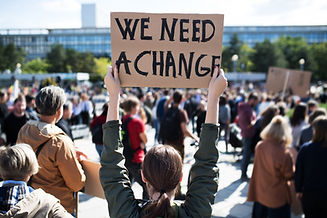New! Our Community Voices Vol. 1 is now available in Spanish. Read it here.
Heat Waves🌡️
What is a Heat Wave?
When we have hot weather that lasts a few days, we call it a heatwave. Usually at night things cool down, but during a heatwave, it stays hot even after the sun sets. Since the heat doesn't go away at night, each new day feels even hotter than before.
How does a heatwave affect human health?
-
Heat-related illnesses can occur when the body is not able to properly cool itself down.
-
Usually, your body stays cool by sweating. But when it's very hot outside, sweating might not be enough.
-
When this happens, your body heats up faster than it can cool off. This can hurt your brain and other important parts of your body.
Why are heat waves more frequent now?
-
Certain gases in the air act like a blanket around Earth, keeping more heat in than usual. As more of these gases build up, Earth gets warmer.
-
When Earth gets warmer, it changes our weather, land, and oceans.
-
As the Earth keeps getting warmer, we get more hot days, and heatwaves happen more often. These hot spells can be worse than before and last longer.
How Different Populations Are Impacted
While we will all experience heat waves at some point in our lives, the impacts of extreme heat are not felt equally across all communities. Below are some examples of groups who may experience more significant effects from heat waves.

Solutions
Individual Actions
-
Check in on family, friends, and neighbors to ensure they have access to air conditioning or cooling centers, especially those who are elderly, younger, sick, and/or low-income.
-
Increase shade around your home by planting trees and other vegetation, which provides cooling around your home. This can decrease the need for air conditioning and help reduce your energy bill.
Local & State Solutions
-
Community cooling centers are air-conditioned public spaces that provide relief during extreme heat events
-
Communication measures to provide heat warning information and appropriate actions for the public
-
Improve infrastructure, such as installing green or reflective roofs, can reduce building energy use for heating or cooling.
Actions
-
Use creative outlets such as theater, music, and other visual arts to educate people about heat safety and environmental adaptation.
-
Host tree-planting events with the community
-
Train the workforce, whether you’re a healthcare worker, teacher, or office worker, to recognize and treat the signs of heat-related illnesses
-
Uplift local, state, and federal policies that address heatwaves





